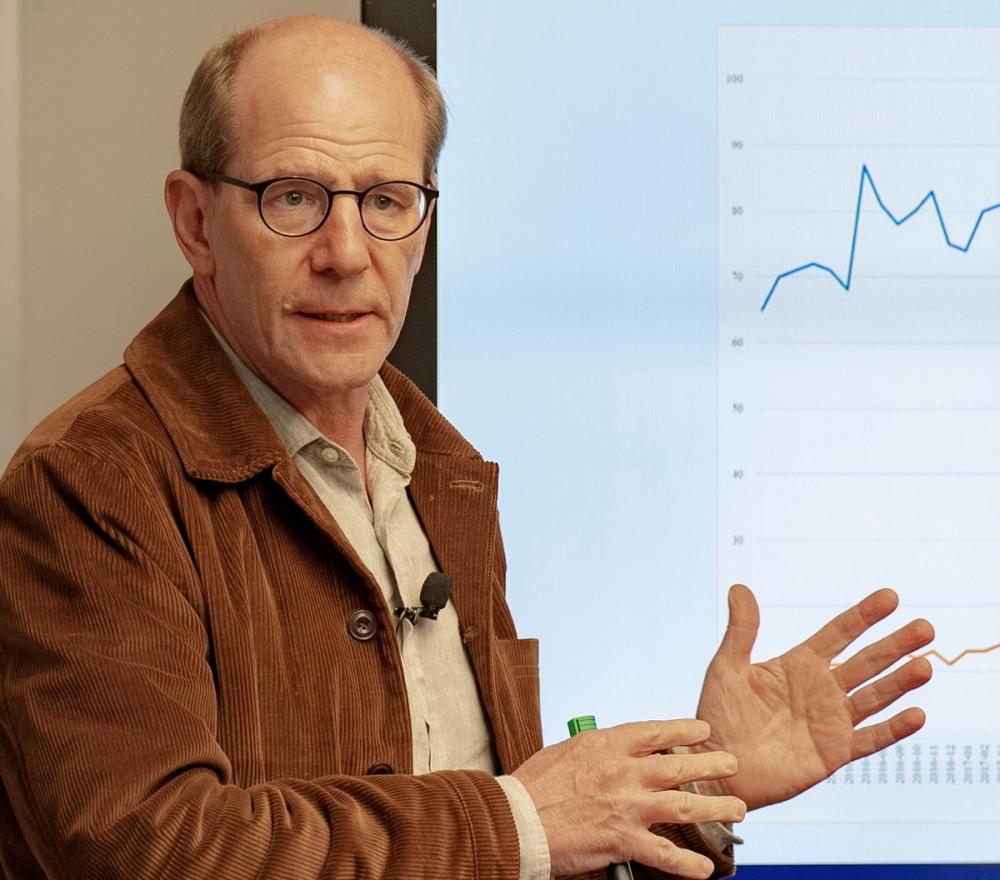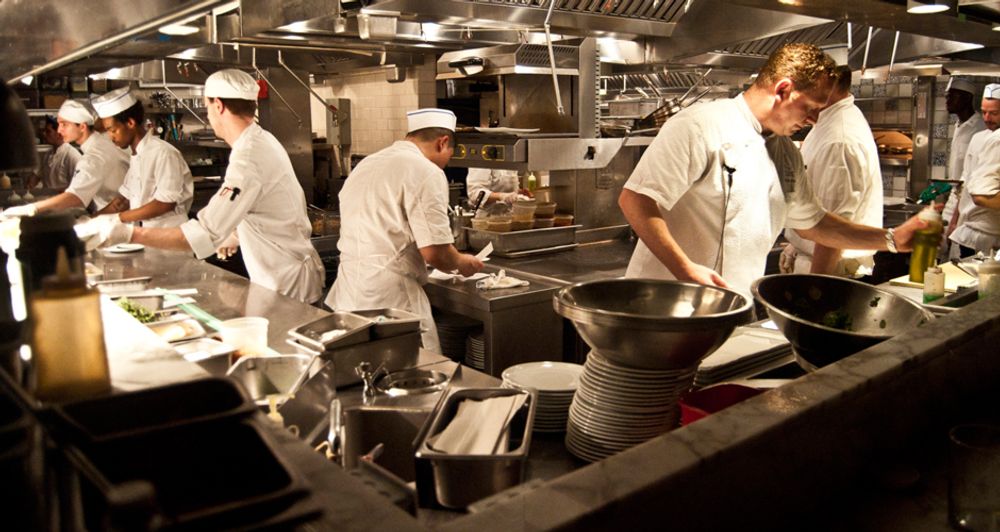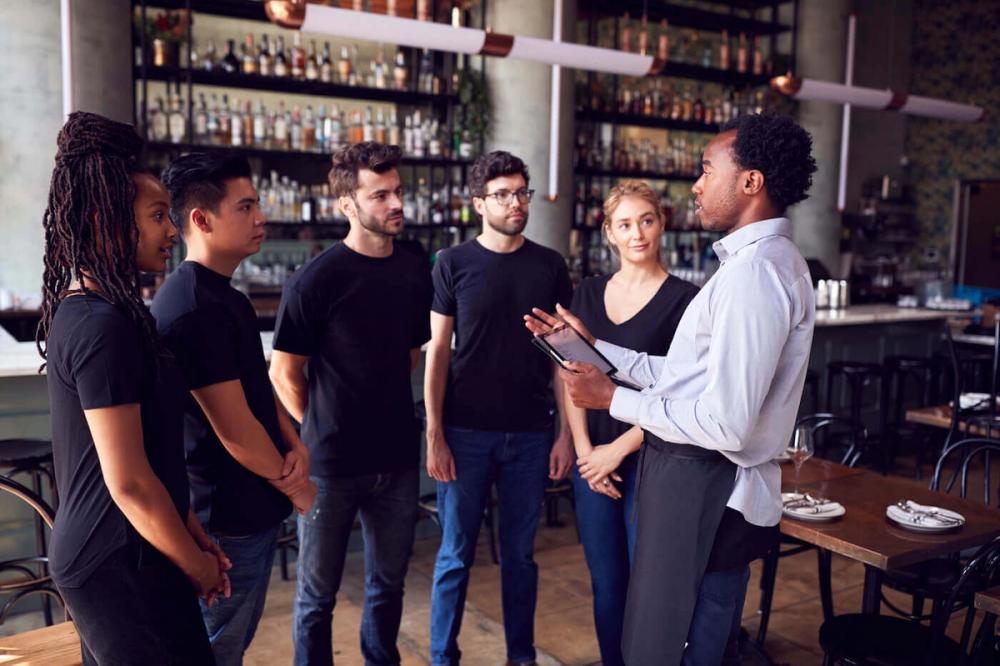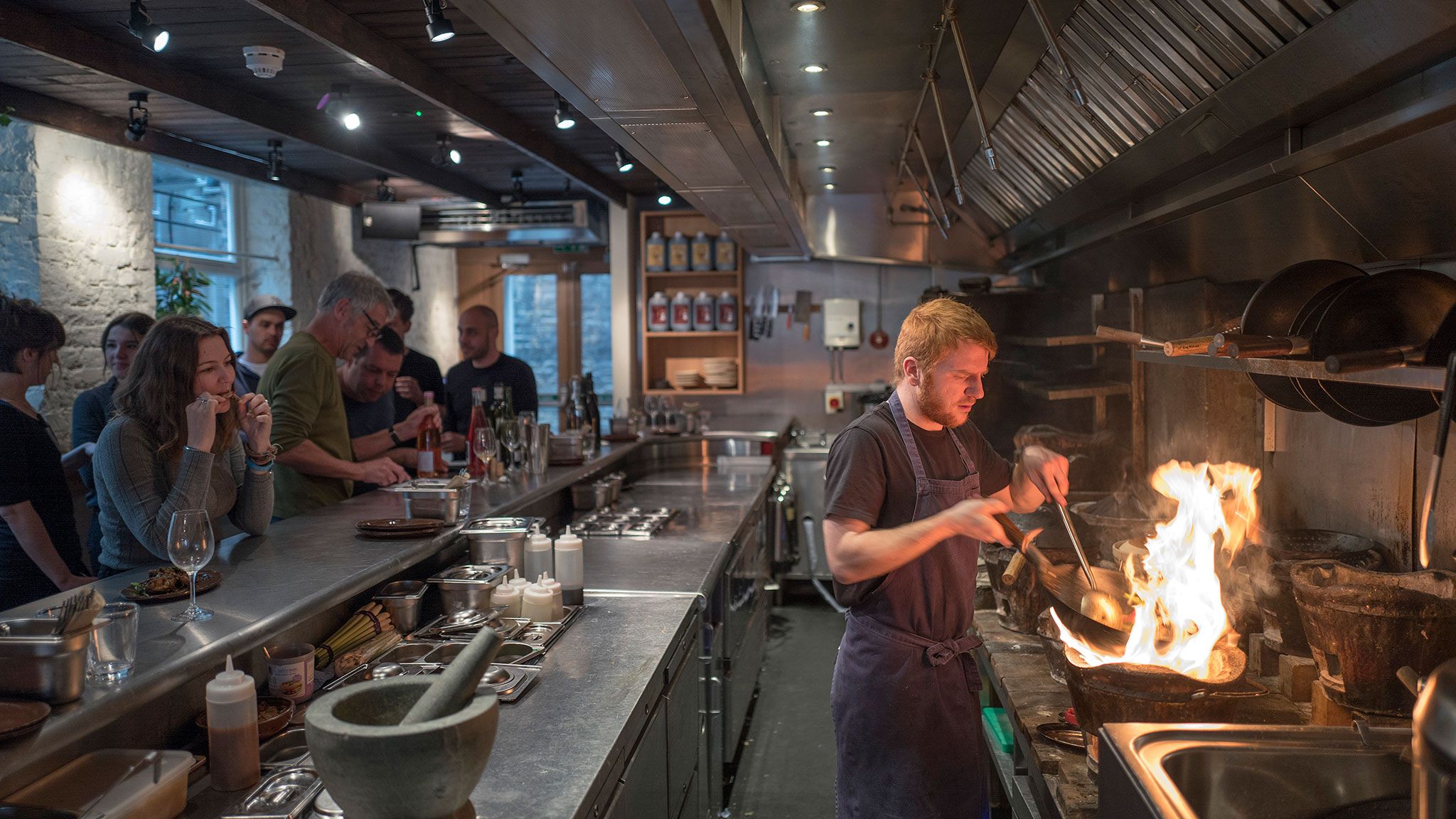The Energy & Environment Alliance (EEA) and the King’s College London Executive Education Programme has been designed by world leading academics, researchers, global industry leaders and hospitality investors. Click here to find out more.
Tell us about your new ESG programme…what are you hoping to achieve?
Dr Marc Lepere: Both the EEA and King’s Business School have a shared mission to equip hospitality leaders so that they can lead their organisations to a more sustainable future. All businesses must engage in changes and new regulations to both mitigate risk and, more importantly, create value in their businesses by adopting sustainable business practices.

King’s Business School’s Dr Mark Lepere says the new ESG programme is very much designed in partnership with hospitality leaders
Ultimately, we want to forge a network of engaged and proactive industry leaders who have the knowledge, connections and ambition to drive this transformation across the hospitality sector.
How have you put the programme together? You say you have asked up to 40 hospitality leaders for their input - what advice were you looking for in particular?
Lepere: From the outset we developed a strong partnership between EEA and KBS. EEA’s expert team shared their insights to outline the challenges and needs in the industry and King’s married this with world-leading research and academic expertise.
Together we ran six workshops to be representative of owners, brands and operators.The EEA’s global summit in London in March served as a global workshop. To understand regional nuances five additional workshops were conducted online: two European workshops and one in each of Asia-Pacific (APAC), North America (NA), and Middle East and North Africa (MENA).
The workshops were in the format of structured and free discussions. Each workshop was recorded, transcribed, and analysed to tailor the programme design. All of this helped us to fully understand the priorities, knowledge and skills gaps, and concerns that industry leaders share.

Hospitality businesses need to be thinking about running a sustainable strategy from the buildings they operate in, their supply chain and sourcing through to how they are working with their staff
With these insights we developed the course knowing it works for leaders in the industry and deals with the key points they need to learn. It’s been a really positive experience for all of us sharing the insights from across the worlds of academia, practice and industry.
For all of us this course is just the first part of a partnership which we hope will expand into further education, research collaboration and industry insights that will help the sector. We’re already working on a version of the course for hotel and operations managers which will bring the learning into their roles.
You say it is specifically for hospitality leaders – in what way – do you have examples of the topics and issues you cover that makes it hospitality specific?
Lepere: Through our research and workshops we’ve fully understood what the challenges are for hospitality leaders. For example, guests are demanding sustainable hotels and businesses, but there is a fear that this is not yet translating to their purchasing behaviour with the exception of the corporate and luxury sectors. The course marketing module is specifically designed to examine current evidence and address these tensions.
The course will facilitate participants to share the environmental, social, and governance sustainability initiatives that they already have in place so everyone can learn from each other. We know that people feel the challenges of climate change and just transition are daunting and impossible to solve. Our course is designed to inspire participants to develop specific initiatives that they can operationalise immediately.
Participants will work to develop a sustainable innovation project for their own company. As part of the project students will develop a Theory of Change exploring opportunities and barriers for each key stakeholder group.
What do you see as the most important and pressing challenges facing hospitality over ESG issues?

The EEA’s chief executive Ufi Ibrahim says hospitality businesses need to tackling ESG issues
Ufi Ibrahim: Openness to industry grand challenges around existing buildings and F&B. In 2050, when all hospitality businesses are required to be operating on a net zero carbon basis, 80% of the buildings we’ll have then are already here. The biggest challenge is the transition of these existing buildings to net zero carbon, especially given that the majority of these sites are very old.
On the upside, the bigger the challenge, the greater the reward. In this case, the effective transition of existing buildings promises an immediate reduction in costs (such as those related to energy and water), an improved EBITDA and higher (or at the very least non-discounted) asset values.
Social aspects – how changes impact (negatively and positively) local communities, local procurement, the wellbeing of guests.
At its very core, hospitality is an industry of people serving people. The spirit of service is firmly embedded in our customer value proposition, and in turn customer satisfaction levels have a direct impact on profitability. Therefore, harnessing social value and social equity can be a massive win for employers and the commercial sustainability of the business.
At the same time as leveraging the ‘high-touch’ nature of our industry, we have to tackle a number of serious social challenges which undermine the reputation of our sector. For example, we need to address childhood sexual exploitation and other illegal or immoral activities which may take place in hotels. We also need to better manage the impact that our businesses and our guests have on local communities.
What would be your advice to a business looking to implement ESG strategy – what are the basics they need to get right to make sure they follow the right strategy for their business?
Lepere: Data is the biggest challenge hospitality leaders face. Working out what additional data to collect, analyse and report is at the heart of making sustainable business decisions.
How is the course going to run? Is it in person or virtual or mixture? What sort of commitment do you need from those signing up to take part?

The different modules in the new ESG education programme
Lepere: The course runs “live online” – participants will join eight online interactive sessions over a few months so they can speak directly with expert faculty and each other. In between there will be readings and self-paced online work to complete to help embed the learning and dive deeper into certain topics of interest.
Participants will then work on a personal project relevant to their own role/business before congregating in person at the annual EEA summit in March 2023.
How much does it cost?
Ibrahim: The full fee for the course is £8,440 and we’re pleased to offer preferential fees of £7,174 to EEA members. Additional savings are available for registrations before 31 August and for corporate groups.
What sort of businesses/ individuals do you think will get the most out of it ?
Ibrahim: This is an exciting period of transformation in which businesses must re-engineer design, construction, operations, measurement, and the disclosure of financial and non-financial (ESG) information. New ESG controls, processes, data, and governance (including board level oversight) will be critical to success. Business leaders will need to set new strategies, nurture new cultures, up-skill their workforce and step-up adoption of new technologies to future-proof investments.
That’s why we believe that the c-suite and board level directors will stand to gain the most of this executive education programme; because the pressure is on them to lead effective and transformative change starting now.
What are your long term goals with the programme – how do you see it developing?

The ESG programme is designed to help all staff share the ESG principles
Lepere: We’re already working on the next phase of our partnership which intends to bring the same high quality education to those working in hotel management and operations roles.
Are you looking for support and investment from the drinks/ hospitality sector to help fund/ support the programme going forward?
Ibrahim: There is no single silver bullet to achieving sustainable procurement. No one supplier or procurement channel has all the answers. At the same time, one question keeps popping up – who pays for the transition? Effective collaboration across the entire value chain is the fastest way to transition to net zero carbon and ESG leadership in a way which is commercially sustainable for producers, distributers and buyers.
Therefore, EEA and KBS are very keen on the input of the F&B sector, to ensure that the leaders of today and tomorrow are equipped with the necessary tools to make informed procurement decisions on farm to glass and farm to fork products and services.
- To find out more about the ESG education programme click here.








































